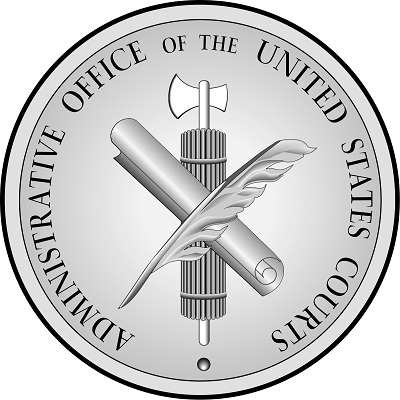The Volokh Conspiracy
Mostly law professors | Sometimes contrarian | Often libertarian | Always independent
Judges May Continue to Participate in the American Constitution Society and the Federalist Society
From yesterday's memorandum from the Administrative Office of the United States Courts, quoting the report of the Judicial Conference Committee on Codes of Conduct:
[T]he Committee … [circulated] a new draft Advisory Opinion No. 117 … [which] advised that formal affiliation with the ACS or the Federalist Society, whether as a member or in a leadership role, is inconsistent with the Code of Conduct for United States Judges, and that while membership in the ABA's Judicial Division is not necessarily inconsistent with the Code, judicial members should carefully monitor the activities of the ABA to determine whether membership remains consistent with the Code and query whether a position taken by the ABA might call the affiliated judge's impartiality into question and necessitate recusal in a given matter…. The Committee received comments [on the draft] from about 300 judges, expressing a wide variety of views on the issues raised.
At its July 2020 meeting the Committee reviewed the comments, and after extensive deliberations voted to table issuing draft Advisory Opinion No. 117 and not to publish it. The Committee elected to table the matter because the comments on the issue of membership in law- related organizations demonstrated a lack of consonance among judges. Rather than attempting to offer advice on membership in specific organizations, the Committee has decided to rely on the advice it has previously given to judges as to how judges should analyze membership in these types of organizations. See, e.g., Advisory Opinion No. 82: "Joining Organizations."
The Code of Conduct encourages judges to remain active in the community and the legal profession so long as those activities do not conflict with judicial obligations. The Committee stands by its previous guidance provided in the Published Advisory Opinions and in the Compendium of Selected Opinions. That advice demonstrates that the Committee has consistently opined that judges may appropriately belong to law-related organizations that embrace a broad range of views.
Even so, prudence dictates that as judges confront a world filled with challenges arising out of emerging technologies, deep ideological disputes, a growing sense of mistrust of individuals and institutions, and an ever-changing landscape of competing political, legal, and societal interests, they need to remain vigilant about problems associated with membership in organizations. In making membership decisions, a judge should regularly review, consider, and examine whether membership in any particular organization is consistent with the core values of judging, recognizing that the mission and objectives of organizations may change over time. The Committee's past guidance has counseled judges to consider such things as recusal obligations and any burdens on judicial integrity, including how membership in an organization may implicate the judge's impartiality and how membership in an organization may reflect on the judge or the judiciary as a whole.
The nation depends on a judiciary that is impartial and independent. Consistent with the judge's oath, each individual judge should take care to make all membership decisions in a way that is consistent with the highest ideals of the profession as expressed in the Code of Conduct. The rubric that is laid out in the Committee's prior opinions and guidance is the appropriate way to analyze membership decisions, but balancing these considerations is ultimately best left to the judgment of individual judges.
Special bonus: The memorandum is fascest! Check out the fasces on the seal on top of the memo (and, yes, the Fascists were indeed named after the fasces):

Editor's Note: We invite comments and request that they be civil and on-topic. We do not moderate or assume any responsibility for comments, which are owned by the readers who post them. Comments do not represent the views of Reason.com or Reason Foundation. We reserve the right to delete any comment for any reason at any time. Comments may only be edited within 5 minutes of posting. Report abuses.
Please to post comments


I do love the AO.
Article III administrative agencies FTW!
Axe me not what I can do for my Society; ask what other can do against them.
The ABA is nakedly partisan and everybody going to law school is forced to interact/be under their influence to some extent so whats the big deal for these other organizations?
Quit whining. Try to accept your choice of the wrong side of history, your consequent loss in the culture war, and your associated position at society's impotent fringe with some dignity.
At least for now. I wouldn't count on the long run.
Mighty generous of them to allow, Freedom of Association. I'm glad they disavow the same past practices which negatively impacted the NAACP, and others. McCarthyism should be a dead letter. So sad, to see it's a question today. Perhaps, Liberals should invite more Conservatives to their Forums; much like the Federalist Society does today. Maybe Liberals, can not defend their ideas in a polite way? Why the Fear?
Get an education, Temp Jeff. Start with standard English, focusing on commas and capitalization.
Backwater religious schooling does not count.
Interesting, no mention of being in the ACLU, BLM or the SPLC.
The proposal was an attempt to kneecap the Federalist Society and to impede Trump's judge pipeline. Getting decent Judges confirmed has been the most successful aspect of the Trump administration, and should pay dividends decades down the road. That has not gone unnoticed.
Whatever the merits of the proposal, it's hard to see how requiring judges to resign from the Federalist Society after they take the bench would "kneecap" the Federalist Society or "impede" anything.
Extra-special bonus. Use of the fasces as a symbol of republican (note, small "r") power dates to the Federalist (!) era in American government. Federalist-era fasces iconography extended to architecture, furniture, portraiture (Washington, especially), and, eventually, after time travel, to coinage on the reverse of the so-called "Mercury," dime of the 20th century.